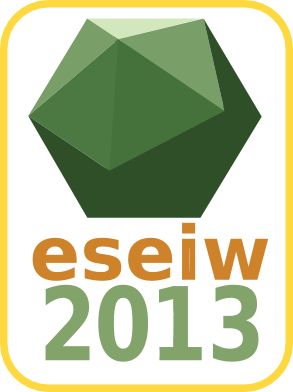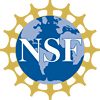
Call for papers
The ACM / IEEE International Symposium on Empirical Software Engineering and Measurement (ESEM) is the premier conference for research results related to empirical software engineering. These include discussions of: i) strengths and weaknesses of software engineering technologies and methods from an empirical viewpoint; ii) the design and analysis of empirical studies, ranging from controlled experiments to case studies and from quantitative to qualitative studies; and iii) the use of data and measurement to understand, evaluate, and model software engineering phenomena. The symposium encourages the presentation of both novel work and replication studies. Papers are rigorously reviewed by leading international experts and the full paper acceptance rate is competitive.
ESEM provides a stimulating forum where researchers and practitioners can present and discuss recent research results on a wide range of topics, in addition to also exchanging ideas, experiences and challenging problems. The 2013 symposium particularly emphasizes expanding and enhancing the dialogue between practitioners and researchers. Industrial experiences supported by empirical studies are of real interest.
No paper presenting results will be considered for review without an explicit description of the empirical strategy applied. Although not strictly required, the use of structured abstracts for full papers is suggested.
The relevant topics include, but are not restricted to, the following:
- New ideas pertaining to measurement, evaluation, comparison and development of empirical software methods
- Qualitative methods
- Infrastructures and novel techniques for conducting empirical studies
- Families of experiments
- Replication of empirical studies
- Cross- and multi-disciplinary methods and studies
- Systematic literature reviews
- Aggregation, synthesis and meta-analysis of studies
- Empirical studies of software processes and products
- Industrial experience, case studies and action-research
- Evaluation and comparison of techniques and models
- Reports on the benefits / costs associated with using certain technologies
- Empirically-based decision making
- Empirical evaluation of prediction systems or software estimation models
- Data mining and empirical methods
- Quality measurement and assurance
- Simulation-based studies in software engineering
- Software project experience and knowledge management
- Software technology transfer to the industry
- Measurement and process improvement programs
All submissions will be peer reviewed. Please note that every accepted submission must have a minimum of one author registration.
Full paper submission
Papers should describe original, unpublished work, which is not under parallel submission elsewhere. Papers are limited to 10 pages, must be written in English, and must be formatted according to the IEEE manuscript templates for conference proceedings (http://www.ieee.org/conferences_events/conferences/publishing/templates.html). Any papers that exceed 10 pages, or are outside the scope of the symposium, or do not follow the formatting guidelines will be rejected without review. At least one author of accepted full papers must register by the full papers' camera-ready deadline.
Short paper submissions
The goal of short papers is to promote current work on research and practice. Short papers represent an early communication of research and do not always require complete results as in the case of a full paper. In this way authors can introduce new ideas to the community, discuss ideas and get early feedback. Please note that short papers are NOT intended to be position statements. Short papers that are accepted will be published in the proceedings and available through IEEE Xplore. Short papers must be submitted through the Web-based submission system (please select track "Short Papers"), and using PDF format only. Short papers must not exceed 4 pages and must be formatted according to the IEEE manuscript templates for conference proceedings (http://www.ieee.org/conferences_events/conferences/publishing/templates.html). At least one author of accepted short papers must register by the short papers' camera-ready deadline.
Poster Sessions
The ESEM Poster Sessions provide an excellent forum for authors to present their work in an informal and interactive setting. Posters are ideal for presenting speculative, late-breaking results or for presenting new and innovative work. Poster Sessions separate themselves from the Short Paper Sessions by allowing authors the ability to get immediate, personal feedback from conference attendees during the break sessions as they present their work. Posters also provide conference attendees an opportunity to see emerging work in the field in a more relaxed setting. Successful posters are carefully designed to convey technical details. They should also attract the attention of attendees as they stroll past the displays. The goal is to develop a poster that encourages and facilitates small groups of individuals interested in a technical area to gather and interact. Posters that present work in progress and draw important conclusions from practical experience are especially welcome. Posters must be submitted through the Web-based submission system (please select track "Posters"), and using PDF format only. Poster proposals must not exceed 1 page but need not be formatted according to the IEEE manuscript templates for conference proceedings (http://www.ieee.org/conferences_events/conferences/publishing/templates.html).
Submission deadlines
Industry Track
ESEM 2013 will also feature an Industry Track. Please see CFP Industry Track for the Industry Track Call for Papers.















